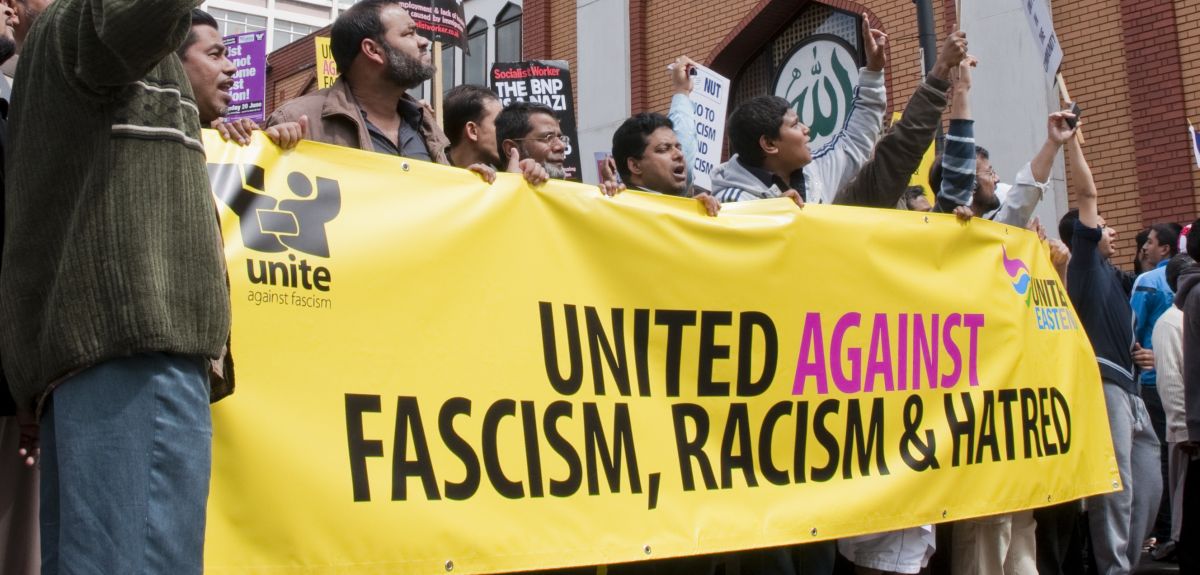
What drives far right and radical Islamist movements?
A new report, 'Integration, Disadvantage and Extremism', produced by researchers from the University of Oxford and Birkbeck, University of London, for the All-Party Parliamentary Group Against Antisemitism, examines what drives extremism in British society.
It suggests that Islamist and far-right extremism are often two sides of the same coin with radical ideologies being embraced by people who feel marginalised as they appear to offer an explanation for, or an answer to, a sense of grievance or lack of opportunity. The report, which offers new insights from ten leading academics and thinkers, says extremism and integration cannot be tackled at a local level alone. Nor can they be addressed in isolation from tackling issues of disadvantage and inequality. It suggests a unified national strategy is required to build community cohesion and integration, incorporating legal and policy responses, and with a renewed commitment to improving social mobility and racial justice.
Professor David Feldman, Director of the Pears Institute for the study of Antisemitism at Birkbeck, University of London, who co-edited the report, said: 'Xenophobia, Islamophobia and antisemitism are promoted by leaders and ideologues to drive many different forms of extremism. Their appeal to followers is rooted in social and political grievances. Intolerance and racism cannot be understood or fought in isolation from tackling their underlying causes.'
Report co-editor Dr Ben Gidley, Associate Professor in the Centre on Migration, Policy and Society (COMPAS) at the University of Oxford, said: 'Integration – or a lack of it – is experienced at a local level on the streets of Britain’s towns and cities. This research suggests a more effective national strategy is needed to overcome barriers to integration; otherwise, there is a risk that we create conditions within which extremism can flourish.'
One of the report contributors, leading sociologist Professor Anthony Heath from the University of Oxford, identifies what he calls 'the paradox of integration'. He suggests that second generation British Muslims are becoming more aware of inequalities in British society than their parents’ generation were. 'Simple caricatures of Muslims as leading separate lives will not do,' concludes Professor Heath. 'Non-Muslim British citizens must do their part too to live up to the ideal of providing equality of opportunity for their Muslim fellow citizens.' Professor Heath, who led the Ethnic Minority British Electoral Survey (EMBES) in 2010, found that while 94% of Muslims born in Britain expressed their national identity as British or English, compared with 66% of first generation Muslims who migrated here, their perceptions of discrimination and exclusion have increased: 46% of second generation British Muslims felt there was prejudice against Muslims as compared with 27% of the previous generation; 20% of second generation Muslims also felt discriminated against because of their religion as compared with 8% in the first generation.
The reasons why people support far right organisations, as well as the UK Independence Party (UKIP), in Britain are also explored. Vidhya Ramalingam, from the London-based Institute for Strategic Dialogue (ISD), argues that there is 'a wide reservoir of tacit support' in Britain for ideas put forward by the far right. 'The UK has historically been fertile ground for movements thriving on discontent with mainstream political institutions, popular xenophobia and euro-scepticism,' she adds in the report. She suggests that although the UK Independence Party (UKIP) is not a right-wing extremist party, there are overlaps between its policy proposals and those of the far right. Her review of existing research concludes it is important not to stereotype these groups or their assumed support base as being from 'the white working class'.
UKIP’s 'narrative of divide and rule' is explored by Professor Ben Rogaly from the Sussex Centre for Migration Research and Dr Becky Taylor from Birkbeck, University of London. They explore what is meant by the white working class, arguing that UKIP seeks to separate 'strivers' from the 'skivers' to justify cuts in benefits, and immigrants and ethnic minorities from the so-called indigenous population. Their research includes case studies in Peterborough of white working class individuals who have moved to the area, and assesses their views of international migrants. The authors suggest that politicians 'should be bolder in articulating the structures which give rise to common experiences of inequality and disadvantage, rather than focusing on external markers of difference'.
 Expert Comment: Is an under-16 social media ban the right course?
Expert Comment: Is an under-16 social media ban the right course?
 ADHD medication use rises sharply across Europe, driven by growth among adults
ADHD medication use rises sharply across Europe, driven by growth among adults